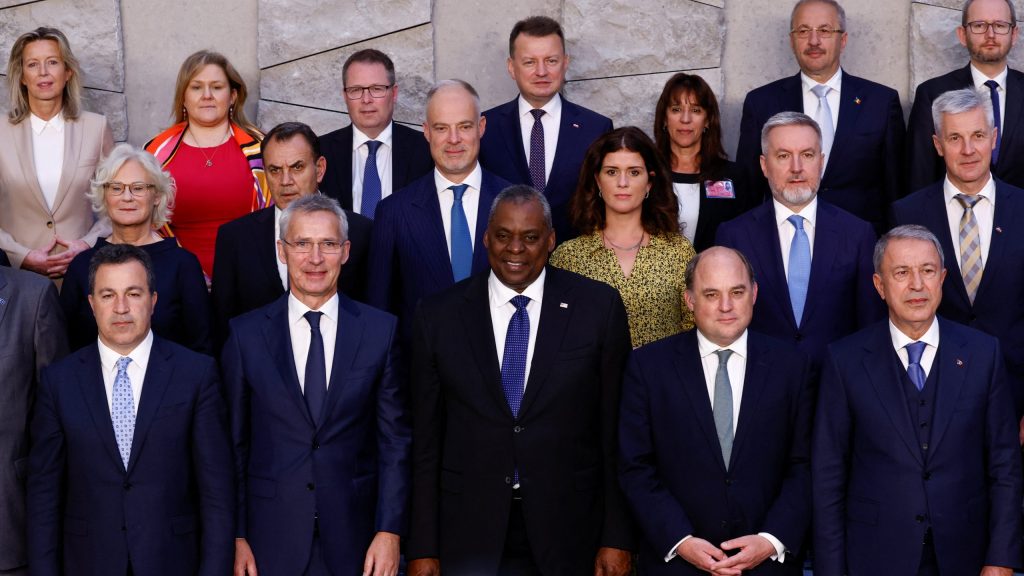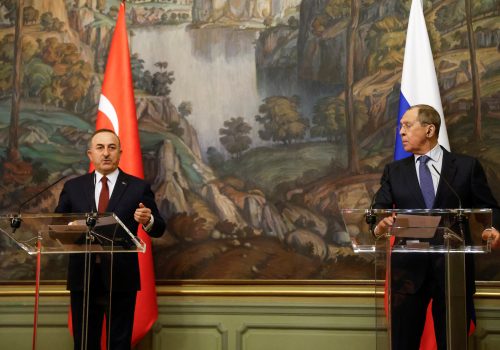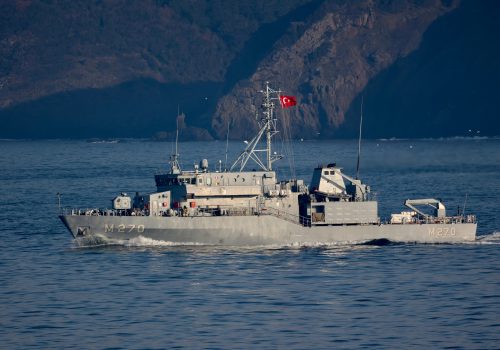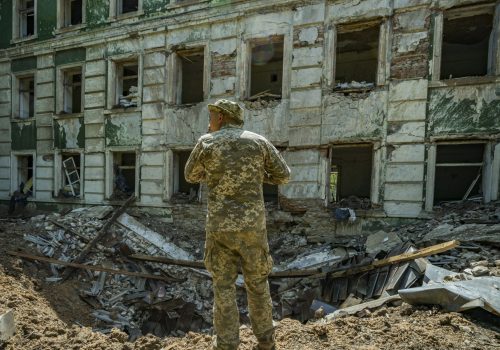As NATO prepares for its summit in Madrid next week, Turkey is in the headlines for holding up Finland and Sweden’s bids to join the Alliance—irking not only the two candidate countries, but also their would-be NATO allies.
Ankara wants Helsinki and Stockholm to stop harboring and supporting individuals affiliated with the Kurdistan Workers’ Party (PKK), which it considers to be a terrorist organization (and is recognized as such by both the United States and the European Union). It also demands an end to the arms embargoes imposed by these countries after Turkey’s military operation in northern Syria in 2019. President Recep Tayyip Erdoğan has made it clear that nothing short of concrete steps will be enough to reverse Turkey’s stance.
Turkey’s concerns are serious and, as stated by NATO Secretary General Jens Stoltenberg, they are “legitimate.” Yet Russia’s invasion of Ukraine and the belated manner in which Ankara has publicly raised its concerns have muddled that important reality, tainting Turkey and its role in the Alliance.
Frustrations with Ankara are leading to all types of reactions, ranging from scathing criticism of its policies to nonsensical suggestions like kicking Turkey out of NATO. A reciprocal, equally loaded debate is taking place in Turkey, where grudges against allies deemed to be insensitive to the country’s security concerns have been aggravated. Some influential political actors have even voiced similarly misguided suggestions like leaving NATO.
The noise emerging from this mutual sense of disenchantment is considerable and could drown out sober thinking about the true value of Turkey’s presence in NATO. The reality is simple: Both Turkey and NATO are stronger together. Irritants that have weighed down this relationship must be addressed sooner than later.
Going both ways
With seventy years under its belt, Turkey is among NATO’s older members. It boasts a strong legacy, having been a bulwark against communism during the Cold War and a frontline player in many regional crises that erupted later, including in the South Caucasus, Balkans, Iraq, and, most recently, Syria. In contrast to most other Alliance members, this incessant state of conflict around its borders has denied Turkey any peace dividend.
Turkey’s formidable military capacity and growing expeditionary capabilities, together with its expanding defense industry (particularly in drone technologies) are all critical enablers for NATO. Even as priorities change and global attention shifts to the east, Russia’s invasion of Ukraine has proven that building sustainable security in the Euro-Atlantic area is unfinished business. Much to the delight of Turkish officials, this has corroborated Ankara’s continuing geopolitical relevance—something it is betting on, maybe excessively so, in making its demands of Finland and Sweden.
But Turkey has also benefitted immensely from its membership in NATO, a reality that is often lost on (or conveniently disregarded) by ideologically driven Turkish critics of the Alliance. The country’s influence as a regional actor, both during and after the Cold War, has always been augmented by its NATO identity. Meanwhile, being embedded in the Alliance’s security network has made Turkey safer by bolstering its deterrence and defense, thereby contributing to its sense of security.
The strategic value of being a member of the world’s strongest military alliance cannot be overstated, and anyone who has doubts need not look any further than Ukraine. Finland and Sweden get it, which is why they have taken the historic decision of trashing age-old policies of non-alignment in favor of becoming NATO members.
Restoring the balance
But serious thorns remain in Turkey’s relations with certain allies, and the estrangement risks undermining NATO’s resilience at a critical juncture.
For one, Turkey is deeply irritated that the United States and others are partnering with the People’s Protection Units (YPG), the Syrian branch of the PKK, in the fight against the Islamic State. It is also frustrated at the imposition of arms embargoes—or covert restrictions on arms sales—by its allies over issues like Ankara’s purchase of Russian-made S-400 air-defense systems, its Syria policy, and its support for Azerbaijan in the 2020 war against Armenia. These differences have led to a mutual erosion of trust between Turkey and its allies, sometimes making consensus-building on critical matters difficult.
The Syria issue has, over time, become the most harmful one, pushing Turkey to the extreme on a matter it considers to be of existential nature: fighting terrorism. The first public manifestation of this deepening discord came before NATO leaders met in London in 2019—where Turkey held out until the last minute before begrudgingly endorsing Poland’s and the Baltic states’ defense plans. Ankara was reacting to a hold that had previously been placed on its own defense plans at the behest of the United States, rooted in disagreement about how to refer to the YPG.
Turkey’s position in its demands to Finland and Sweden is similar: In Ankara’s view, it is about holding the enemies of an ally accountable. The restrictions on arms sales are of secondary importance. What’s at stake for Turkey is bigger than the immediate spat over Finnish and Swedish membership in NATO; it is a deep-seated problem to which Ankara has long sought to draw its allies’ attention. Any potential agreement reached with Finland and Sweden won’t turn the tide on these issues, but it could be a helpful point of reference for the future.
For instance, a written recognition by Helsinki and Stockholm of Turkey’s legitimate security concerns in the fight against terrorism, and their commitment as prospective allies to act in full solidarity with Ankara—including against challenges emanating from Syria—might be a template the Turkish government finds politically meaningful. It is through incremental, mutual steps like this that confidence between Turkey and its allies can be restored. Perhaps Finland and Sweden can help pave the way.
Alper Coşkun is a senior fellow within the Europe Program at the Carnegie Endowment for International Peace and former director general for international-security affairs at the Turkish Ministry of Foreign Affairs. Follow him on Twitter: @iacoskun.
Further reading
Tue, Jun 7, 2022
With Lavrov in Turkey, a different war may dominate talks
TURKEYSource By Rich Outzen
The Russian and Turkish foreign ministers could discuss Ankara's intent to carry out a new operation against Kurdish forces in northern Syria.
Thu, May 12, 2022
Energy security is critical to NATO’s Black Sea future
TURKEYSource By Arnold C. Dupuy
Russia's invasion of Ukraine demonstrates the fragility of energy security in the Black Sea region, which NATO should address.
Thu, Jun 9, 2022
Proxy war or not, Ukraine shows why moral hazards matter
New Atlanticist By C. Anthony Pfaff
Whether NATO and Ukraine are proxy partners matters less than whether they can manage the risks associated with their relationship.
Image: NATO Secretary General Jens Stoltenberg poses with NATO defense ministers during a meeting at the Alliance's headquarters in Brussels, Belgium, on June 16, 2022. Photo by Yves Herman/REUTERS



